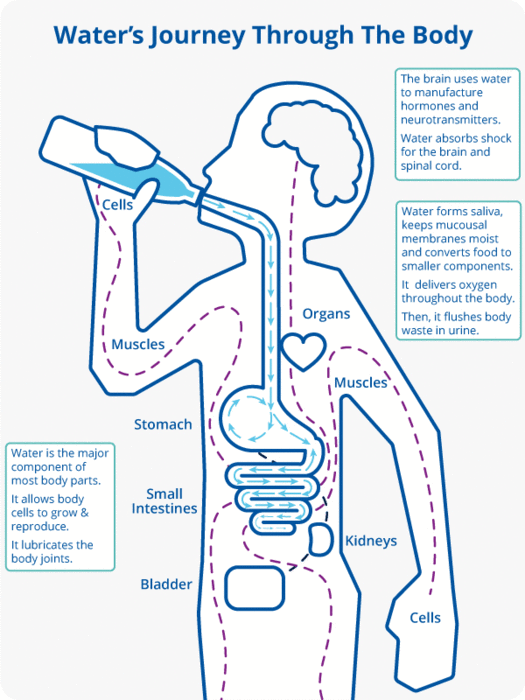How to Effectively Regain Sensation: Essential Tips for 2025

Apply Now


Understanding Sensation Loss and How to Regain Sensation
Sensation loss can significantly impact quality of life, affecting both physical and emotional wellness. Understanding how to regain sensation is crucial for those experiencing disturbances due to various causes, including injury, surgery, or chronic conditions like diabetes. Notably, regaining normal sensory function often involves a multifaceted approach that combines medical treatments, alternative therapies, and self-care strategies. By exploring sensation therapy options and learning techniques to improve nerve function, individuals can work toward restoring their sensations and enhancing their overall well-being. In this article, we will discuss various methods to effectively manage sensation loss, including medical and natural remedies, physical therapy techniques, and the importance of community support. Key takeaways will highlight practical strategies for not only recovering sensation but also maintaining good nerve health in the long run.Essential Medical Treatments for Sensation Loss
Many individuals dealing with sensation loss turn to modern medicine for guidance. Several medical treatments are available to help restore nerve function effectively. Depending on the underlying cause, these treatments can include medication, nerve conduction studies, or advanced medical technology targeting nervous system regeneration.Understanding Diagnosing Sensory Loss
Identifying the root cause of sensation loss usually starts with a thorough neurological assessment. Symptoms may vary widely, and understanding these differences is essential for effective treatment. Conditions such as peripheral neuropathy can often result from diabetes, while injury or surgery can also affect sensory pathways. Proper diagnosis may involve nerve conduction studies to evaluate the functionality of nerves.Medication and Topical Treatments
A range of medications is available to address neuropathy and improve sensory functioning. Pain relief methods, including topical treatments like capsaicin cream, can provide localized relief. Patients should communicate openly with healthcare providers about their symptoms and treatment responses to tailor medication plans effectively.Advanced Medical Technology for Nerve Repair
Innovative therapies, including electrical stimulation therapy and nerve growth factor (NGF) treatments, represent cutting-edge approaches to nerve repair and sensory recovery. These techniques aim to accelerate the healing process and enhance neuroplasticity, which is the nervous system's capability to adapt and change.Natural Remedies and Lifestyle Changes for Nerve Health
While medical treatments are influential, natural remedies also play a vital role in nerve health and sensation recovery. By implementing holistic approaches and lifestyle modifications, individuals can create a supportive environment for nerve regeneration.Diet for Nerve Health and Recovery
Nutrition significantly impacts nerve function and overall health. A diet rich in vitamins, particularly B12, is crucial for repairing nerve tissue. Healing foods, such as fatty fish, nuts, and leafy greens, offer essential nutrients for optimal nerve performance. Staying hydrated is equally important, as proper hydration supports overall bodily functions.Exercises for Nerve Recovery
Physical activity plays a crucial role in improving sensation and strengthening nerve function. Engaging in targeted exercises designed to stimulate sensory nerves can enhance proprioception and awareness of body sensations. Activities such as yoga and tailored sensory exercises not only physically engage muscles but also foster mindfulness and connection with one's body.Mindfulness and Stress Management Techniques
Mindfulness practices and stress management techniques can significantly aid in sensation recovery. Engaging in mindful activities such as guided meditation helps foster a deep connection with the body and heightened awareness of sensations. By enhancing emotional regulation and reducing stress levels, individuals can create an environment conducive to recovery.Alternative Therapies for Sensation Enhancement
In addition to conventional treatments, many alternative therapies can complement recovery efforts. These methods often focus on the mind-body connection and incorporate non-traditional approaches to enhance sensory perception and overall well-being.Acupuncture for Sensation Recovery
Acupuncture is a holistic therapy that has been shown to potentially aid in nerve regeneration and sensation restoration. By targeting specific points in the body, acupuncture may help stimulate nerve function, reduce pain, and alleviate symptoms associated with sensory dysfunction. It is essential to consult qualified practitioners who are experienced in treating nerve-related conditions.Cognitive Behavioral Therapy for Sensation Issues
Cognitive behavioral therapy (CBT) has emerged as a valuable tool to address the psychological aspects associated with sensation loss. This therapeutic approach helps individuals develop coping strategies for managing chronic pain and emotional challenges. Additionally, narrative therapy allows individuals to share their experiences related to sensation loss, providing an avenue for emotional healing and community bonding.Community Support and Peer Engagement
Joining support groups or engaging with community wellness programs provides a valuable connection for those experiencing sensation loss. Sharing personal stories, learning coping strategies, and exchanging practical advice can significantly bolster recovery efforts. By feeling understood and supported, individuals can foster resilience and motivation throughout their recovery journey.Practicing Sensory Awareness and Rehabilitation Techniques
Rehabilitation is a personal journey that requires careful attention to sensory feedback and body awareness. By embracing sensory activities and developing adaptive strategies, individuals can gradually regain sensation while enhancing their quality of life.Creating Stimulating Environments for Sensory Recovery
Designing an environment that promotes sensory stimulation can play a pivotal role in rehabilitation. Incorporating diverse textures, sounds, and visual elements can stimulate the sensory pathways and encourage engagement. Activities such as art therapy and sensory play provide engaging ways to rehabilitate nerves and create positive sensory experiences.Regular Check-Ups for Nerve Health
Routine assessments with healthcare providers, including periodic nerve conduction studies, are essential to monitor nerve health. By keeping track of progress and adjusting treatment plans as needed, individuals can take proactive measures toward managing their sensation effectively.Building a Holistic Approach for Sustained Nerve Health
Integrating medical treatments with complementary therapies fosters a holistic approach to sensation recovery. By addressing both physical and psychological aspects, individuals can improve not only their sensory functioning but also their overall health and well-being.Q&A: Your Questions About Regaining Sensation Answered
What are the first steps to take when experiencing sensation loss?
Recognizing sensation loss should prompt individuals to consult healthcare providers for appropriate evaluations and diagnoses. Documentation of symptoms and their progression will aid in medical assessments.Are there specific exercises to regain sensation effectively?
Absolutely! Engaging in flexibility and strength-training exercises tailored to sensory nerves can enhance the connections between muscles and nerves, thereby facilitating recovery. Consult a physical therapist to design an individualized program.How does diet influence nerve health?
A balanced diet rich in essential nutrients is crucial for promoting nerve repair. Foods high in Omega-3 fatty acids, antioxidants, and B vitamins support nerve regeneration and overall health.Can mindfulness really help with sensation issues?
Yes! Mindfulness practices and stress reduction techniques create a strong connection between the mind and body, fostering better awareness of sensations. This increased awareness can lead to improved coping strategies and overall sensation recovery.What role does community support play in recovery?
Community support helps individuals connect with others undergoing similar challenges. Sharing experiences and accessing collective resources can provide tremendous psychological benefits and encourage a positive recovery trajectory.
